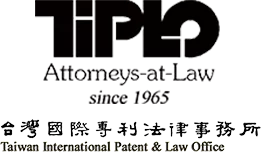Historical Personal Names and Geographical Designations Lacking Acquired Distinctiveness Will Be Non-registrable. Trademark Distinctiveness Examination Guidelines to Be in Place in January 2009.
E081028Y2・E081024Y2 Nov. 2008(E108)
TIPO is about to wrap up the prescription of a Trademark Distinctiveness Examination Guidelines. Under the proposed Examination Guidelines, historical personal names, well-known geographical names and slogans without acquired distinctiveness will be denied registration. The Examination Guidelines is expected to be put in place in January 2009.
The Key Points for Trademark Distinctiveness Examination currently in effect was established in 1997 followed by revision in 2001 and 2004 respectively. However, the Key Points provides only simple application of the relevant provisions with focus more on introduction to past cases than on the elucidation of the relevant theories and the reasoning of the approval or disapproval of registration. Further, the Key Points provides little with respect to the keys to the examination of each common type of marks. As a result, the examiners find it difficult to get hold of the general principle applicable to the examination of trademark distinctiveness.
In view of the foregoing, TIPO collected various typical examination cases by reference to the criteria adopted by the trademark authority of various countries to prescribe the Examination Guidelines. In addition to increased weight of applicable theories, identifying the principle provisions to apply, the Examination Guidelines analytically explains the examination principle applicable to each common type of marks including word marks, letter marks, numeral marks, simple graph marks, family name marks, slogans, etc. Under the Examination Guidelines, historical personal names and well-known geographical names proposed for registration will be denied registrability except when the mark proposed has acquired distinctiveness through use. For example, Newton is approved registration for it is used to designate the magazine. As for geographical names, since the relevant businesses located in the region are entitled to use the geographical name in which no business may claim exclusive right. For example, Nan Yang Street is the name of the street well-known as the base of various businesses providing supplementary courses. No business offering services of the kind will be allowed to claim exclusive right in this street name. The Jade Mountain mark of E.Sun Bank and the North Pole mark used on certain business’s paint product are also examples of approved registered marks the literal designation of which are of no relevance to the service or product provided under the mark.
Slogans for promotional purposes are registrable marks as long as the proposed slogan is proven to be well-known to the consumers and have acquired distinctiveness through use. Take for example the approved registration of ASUS Corporation’s Chinese slogan “華碩品質堅若磐石”. (The slogan literally means ASUS’s quality is as solid and secure as a bedrock.”). The slogan which is descriptive in nature is considered registrable as it has acquired distinctiveness after being used and known to the consumer as one the mark holder uses to promote sale of computers, and notebooks marketed under the ASUS label which is also a registered mark. The Chinese slogan “不在辦公室也能辦公事” used for promoting telecommunication and Internet connection services is another example of the marks approved for registration on proof of acquired distinctiveness. (The slogan literally means one can get work done even if he/she is not in the office.)
As to what evidence will be acceptable as proof of the proposed mark being well-known to the consumers, TIPO said the Examination Guidelines provides the method of proof and the principle of determining the acceptability of the proof produced thereby maintains coherence of the result of examinations conducted by different examiners. Applicants can also use the Examination Guideline to conduct a pre-filing check of their proposed mark.
Further, as to the acceptability of market survey as evidence, in view of the practice that market survey is often denied admissibility by the court, TIPO lays down certain referential criteria with a view to recognizing qualified market survey for evidence. Factors identified for consider the acceptability include the credibility of the surveying agency, impartiality and connection of the questionnaire with the product/service in issue, the method of taking survey as well as the subjects surveyed. (2008.10)
/EMA














